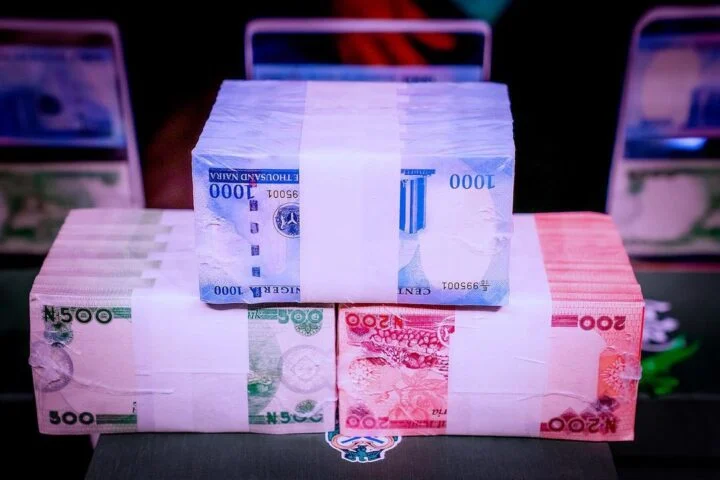The World Bank says the naira is among the worst-performing currencies in sub-Saharan Africa in 2024.
In its regional economic outlook report ‘Africa’s Pulse,’ released recently, the World Bank said the naira continued to lose value, with a year-to-date depreciation of about 43 percent as of August.
According to the World Bank, limited dollar inflows, and slow foreign exchange (FX) disbursements to bureaus de change (BDC) operators by the Central Bank of Nigeria (CBN) weakened the naira.
The international lender also said the demand for dollars, driven by financial institutions, non-financial end-users, and money managers, has exacerbated the pressure on the naira.
“By August 2024, the Ethiopian birr, Nigerian naira, and South Sudanese pound were among the worst performers in the region. The Nigerian naira continued losing value, with a year-to-date depreciation of about 43 per cent as of end-August.
“Surges in demand for US dollars in the parallel market, driven by financial institutions, money managers, and non-financial end-users, combined with limited dollar inflows and slow foreign exchange disbursements to currency exchange bureaus by the central bank explain the weakening of the naira,” the World Bank said.
The report also notes that the naira’s depreciation has contributed to higher domestic prices, particularly for imported goods, compounding the difficulties for Nigerian consumers.
According to FMDQ Exchange, a platform that oversees the official window, the naira closed at N1,658/$ at the official market on October 15.
Also, the Bretton Woods institution said African currencies such as the Kenyan shilling and South African rand, which weakened in 2023, stabilised or strengthened this year.
“The Kenyan shilling is the best performing currency in Sub-Saharan Africa this year: it appreciated by 21 percent year-to-date by end-August 2024,” the World Bank said.
“The South African rand and currencies pegged to it have strengthened by 3.1 percent so far this year, after losing value in the past year.”
The World Bank said despite the recovery, foreign exchange shortages and exchange rate pressures remain a significant concern for many African countries.
Also, the Bretton Woods institution gave a cautious outlook for Nigeria’s economic growth, projecting that the country’s gross domestic product (GDP) will expand to 3.3 percent in 2024 and slightly increase to 3.6 percent in 2025 and 2026.
“Economic growth in Nigeria is projected at 3.3 per cent in 2024 and 3.6 per cent in 2025–26 as macroeconomic and fiscal reforms gradually start yielding results. Inflation peaked in June 2024 (at 34.2 per cent year-on-year) and decelerated to 33.4 per cent in July and further to 32.2 per cent in August,” the bank said.
The World Bank also said following the federal government’s decision to remove subsidy on premium motor spirit (PMS) in mid-2023, petrol prices surged dramatically, causing a ripple effect on inflation across the country.
SUB-SAHARAN AFRICA GROWTH FORECAST DROPS TO 3%
In the report, the World Bank lowered its 2024 economic growth forecast for sub-Saharan Africa from 3.4 percent to 3 percent.
According to the report, the drop in sub-Saharan Africa’s growth forecast is mainly due to the destruction of Sudan’s economy in a civil war.
However, the bank said growth is insufficient to reduce poverty and reach pre-pandemic levels.
The Bretton Woods institution forecast next year’s growth at 3.9 percent, above its previous prediction of 3.8 percent.
“The growth forecast for the region in 2024 has been downgraded by 0.4 percentage point compared to the forecast in the April 2024 volume of Africa’s Pulse,” the World Bank said.
“The downgrade is partly explained by the collapse of economic activity in Sudan caused by the armed conflict, which has destroyed physical and human capital as well as state capacity, with adverse impacts on food security and greater forced displacement.
“Excluding Sudan, the region is expected to grow at 3.5 percent in 2024. The growth recovery in the region is driven primarily by private consumption and investment, Private consumption is set to increase in 2024 as declining inflation raises the purchasing power of African households.”
Speaking on the report, Andrew Dabalen, chief economist for the Africa region at the World Bank, said the region needs much larger levels of investments to recover faster and to reduce poverty.






